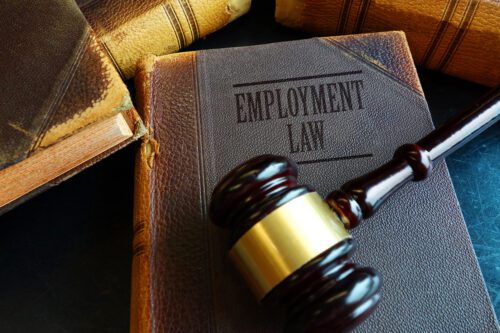2019 is a landmark year for changes in the area of Employment Law. Family Leave and New Jersey Minimum Wage will be impacted by laws signed by Governor Murphy. Associate Andreya DiMarco breaks down the new employment laws from Trenton and what it means to employers.

New Jersey family Leave
On February 19, 2019, New Jersey Governor Phil Murphy signed legislation that amends and significantly expands New Jersey’s existing Family Leave Act (NJFLA) and Family Leave Insurance law (NJFLI). Some of the amendments went into effect immediately while others were deferred.
An important amendment which was recently implemented on June 30, 2019, is the modification which reduces the employer size threshold to thirty (30) employees, from the previous threshold of fifty (50) employees. Thus, employers with thirty (30) or more employees are required to provide eligible employees working in New Jersey with twelve (12) weeks of job-protected family leave during each 24-month period. To be eligible for family leave under the NJFLA, an employee must have been employed for at least twelve (12) months and must have worked at least 1,000 hours in the preceding twelve (12) months. This change takes the NJFLA out of alignment with the federal Family and Medical Leave Act (FMLA), which applies only to employers with fifty (50) or more employees.
The NJFLA permits leave to be taken for: the care of a newly born, adopted child, or a child placed through foster care with the employee, as long as leave begins within one year of the date the child is born to or placed with the employee; or the care of a parent, parent-in-law, child under eighteen (18), spouse, sibling, grandparent, civil union partner who has a serious health condition.
Leave taken under both FMLA and NJFLA typically runs concurrently. However, because the NJFLA does not afford job-protected leave to employees who need leave due to their own serious health condition, and FMLA does, an employee could be entitled to up to twenty four (24) weeks of job-protected leave under certain circumstances.
Employers should ensure that their policies, handbooks, and practices reflect the amendments being implemented by the law.
Family Leave Insurance
The bill signed by Governor Murphy also expands the monetary benefits available under the paid family leave insurance program for employees employed in New Jersey. Family leave insurance benefits may partially replace wages of employees who have taken leave.
Currently, employees may be eligible for up to six (6) weeks of benefits during a twelve (12) month period. Commencing July 1, 2020, the maximum duration of family leave insurance leave benefits will increase from six (6) to twelve (12) weeks during any twelve (12) month period. Employees will be permitted to take intermittent leave up to fifty six (56) days in a twelve (12) month period, an expansion from the current forty two (42) days. Further, the dollar amount of weekly family leave benefits will increase from two-thirds (2/3s) of a claimant’s average weekly wage to eight five percent (85%) of an employee’s average weekly wage, capped at eight hundred and fifty nine dollars ($859) per week. Any benefits provided under the NJFLI must be sought concurrently with leave under the NJFLA.
The law also prohibits employers from requiring employees to use up to two (2) weeks of paid time off (PTO) in lieu of NJFLI benefits. An employee may elect to use PTO in lieu of NJFLI benefits. When an employee elects to use PTO benefits, this election will no longer reduce the amount of NJFLI benefits available to that employee.
New Jersey Minimum Wage
On February 4, 2019, Governor Murphy signed legislation that incrementally raises New Jersey’s hourly minimum wage. The previous minimum wage in New Jersey was $8.85 per hour. Effective July 1, 2019, the base minimum wage increased to $10.00 per hour. On January 1st of each year, the statewide minimum wage will increase by one dollar ($1.00) per hour until it reaches fifteen dollars ($15.00) per hour on January 1, 2024.
For seasonal workers and employees at small businesses with six (6) or less employees, the base minimum wage will increase at a slower pace, reaching fifteen dollars ($15.00) per hour by January 1, 2026. Specifically, the minimum wage will increase by eighty cents ($.80) per hour each year until 2026 when it reaches fifteen dollars ($15.00) per hour.
About the Author
Andreya DiMarco, Associate, focuses her practice on litigation, with an emphasis on labor and employment and education law, and corporate transactional matters. She handles various facets of litigation including claims of age, race, disability, and gender discrimination as well as claims of harassment, intimidation and bullying. Andreya handles commercial, contract, construction, leasing, and compliance matters.
